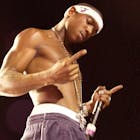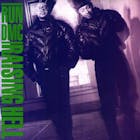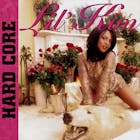
Down With the "King?" Why Media Needs To Stop Crowning a Rap Game "Ruler"
Down With the "King?" Why Media Needs To Stop Crowning a Rap Game "Ruler"
Published Sun, November 28, 2021 at 2:00 PM EST

The lecture is conducted from the mic into the speaker/ Who gets weaker: the king or the teacher? It's not about a salary, it's all about reality/ Teachers teach and do the world good/ Kings just rule and most are never understood..."
- KRS-One, "My Philosophy" (by Boogie Down Productions)
"The King of Rock & Roll."
"The King of Pop."
"The Queen of Soul."
Not since Kurtis Blow was crowned "The King of Rap" in Hip-Hop's early days has there been a neatly-titled royal designation for the rap game's supposed top dog. Such reverential declaratives seem hokey and archaic in a lot of ways, but even without an easily-titled "King" or "Queen" of rap, Hip-Hop obsesses over hierarchy more than any other genre of music. A recent piece for The Ringer attempted to retrospectively streamline Hip-Hop's "kings" and "queens" by year, an approach that undoubtedly makes for fascinating reading but borders on revisionism. Hip-Hop media's preoccupation with an imaginary hierarchy has hurt rap's canonization, and it's time we address a deeply flawed outlook.
No doubt, the battle for rap supremacy is as old as Hip-Hop itself. When emcees were still battling at Bronx block parties, showing and proving that no one could touch you on the microphone was paramount to asserting your name as a rhymer. Even beyond rapping, competition was a cornerstone of Hip-Hop: from the deejays spinning to graf artists to b-boys getting down on the floor. As Hip-Hop culture spawned the rap industry, that spirit of competition became a powerful marketing tool. Rapper feuds became the stuff of legend as Boogie Down Productions sparred with the Juice Crew en route to Hip-Hop infamy; and LL COOL J made a name for himself taking on former Treacherous Three legend-turned-solo star Kool Moe Dee.
As the money got bigger, as the visibility got more mainstream and as rap feuds got bloodier, the title of rap's "King" or "Queen" started to become more of an ongoing talking point. When D.M.C. bellowed that he was the "King of Rock," there was none higher, in visibility or sales, than Run-D.M.C. But that declaration was more about asserting rap's preeminence in a world that was still rock-dominated than it was cementing Run-D.M.C. as Kings of New York Hip-Hop. As Run-D.M.C. and LL COOL J were scaling commercial heights, acts like BDP and Eric B. & Rakim were re-calibrating rap's soul and spirit. The Ringer piece makes allowances by limiting certain "kings" and their reign to a year or two, but it undermines the idea that these legends were all operating around the same time. But in fixating on who sat atop an imaginary hierarchy, the actual history gets muddied and nuance is lost.
DROP YOUR EMAIL
TO STAY IN THE KNOW
One major shift in Hip-Hop's landscape over the past 15 years has been the decline of rap groups. That decline in rap groups has coincided with more dissection of "Hottest Rapper In the Game" or "Top Ten Dead Or Alive" than at any other point in the music's history. The endless stream of lists and rankings online has attuned a generation to reducing greatness to arbitrary "Top Five" lists and the lack of groups means that solo appraisal is what's centered. So even when discussing the greatness of, for example, an Andre 3000, fans are often obligated to single him out in order to fit him alongside solo rappers like Nas and Jay-Z—even though the OutKast legend has never released an official solo rap album. In the 1980s and 1990s, rap groups were among the most visible and popular acts in Hip-Hop. Was Run the "king" of New York Hip-Hop in 1985, as the Ringer piece asserts, or was Run-D.M.C.?
The "King Of New York" distinction didn't really come into vogue until the ascendance of the Notorious B.I.G. and Sean "Puffy" Combs' assertion that Biggie was the figure most responsible for restoring the commercial luster of New York rap in the mid-90s, post-Death Row Records landscape. That claim provoked a myriad of reactions, from Ghostface and Raekwon famously taking some shots at the Bad Boy Records star on Rae's Only Built 4 Cuban Linx... in 1995; and some hard feelings between Biggie and Queens legend Nas, who'd preceded Biggie as New York's newest "chosen one" back in 1993/94.
But it was Jay-Z who really accelerated Hip-Hop's preoccupation with a rap "King of New York."
By the late 1990s, and in the wake of the twin murders of 2Pac and the Notorious B.I.G., rap's alpha figure was a frequent topic of discussion. It had suddenly become bigger than just "Who's the best emcees? Biggie, Jay-Z or Nas?" as Jay himself famously asserted on 1997's "Where I'm From." Now, it was also about commercial standing, cultural sway and street influence. After Biggie was killed, Jay-Z famously stated that "The City Is Mine" at a time when most of the world snickered at his audacity. Within a year, after the multiplatinum success of 1998s Vol. 2: Hard Knock Life, it no longer seemed like empty boasting.
The death of Biggie, the middling late 90s output from Nas, even a period of commercial jousting with DMX, it all seemed to signify a passing of the torch to Jay-Z. Now, this idea of a rap game "King" seemed more real, and as the 90s gave way to the 00s, and as the web became more centered in how rap fans discussed, consumed and appraised rap shit, the idea of rap's "King" gained more weight. Jay's supposed "retirement" in 2003 and the rise of 50 Cent and 50's G-Unit brand only added more fuel to the notion of a rap alpha, and we've been doing this kind of "debate" ever since.
It's DMX's "reign" over New York that precipitated The Ringer to offer "The Complete History of the Kings and Queens of New York Rap." It was X who closed the 1990s as Hip-Hop's most compelling figure, famously releasing two No. 1 albums in the same calendar year and going on a commercial tear that was unprecedented for a gritty, hardcore East Coast street rapper. The forthcoming documentary DMX: Don’t Try to Understand is a production from Ringer Films. "So we looked back and forward from that midpoint—from recorded rap’s beginnings in the late 1970s all the way through the present—to pinpoint who, at any moment, was the king or queen of New York rap. Some reigns are years long and others last a handful of weeks; all had a creative and cultural impact that helped shape a genre and a city," writes The Ringer in the opening blurb for their list.
Hip-Hop media's love affair with rap hierarchy isn't really born of the same spirit that fueled those park battles. It's fueled more by a mainstream media more fixated on rap's more WWE-like elements; conflict, chest-thumping and sparring for a title that doesn't really mean much, at the end of the day. Those sites produce lists to appraise rap's history with zero real reverence for the nuance, scope and color of that history, they water it down to the lowest common denominator. And in doing so, they disrespect and gloss over the vibrancy and genius of that history. Nobody asked you to start retroactively crowning anybody the king of anything.
Hip-Hop's history is so much more than who was "King/Queen" at any given moment. Even if one were to limit the conversation exclusively to New York City's rap history, it's kind of silly to posit that Q-Tip was considered "King Of New York" circa 1993 just because fans were raving about A Tribe Called Quest's Midnight Marauders. That's not to say Q-Tip isn't a legend and anyone who doesn't realize the kind of roll Tribe was on at the time needs a history lesson. But Tribe fans weren't preoccupied with crowning anyone anything in 1993, and most Hip-Hop fans weren't, either. Because while Tribe was doing their thing, Wu-Tang was doing theirs, and Nas was soon to be doing his. Hell, Salt-N-Pepa's Very Necessary outsold all of them at the time. Maybe The Ringer should've declared them the "Queens" of that year or the next?
The greatness of Hip-Hop's history goes beyond any Top Five or Top Ten. It includes men and women, solo acts and groups, artists who have long careers and artists whose peaks were relatively short. There are legendary wordsmiths, game-spitters, story tellers and outsized personas. Hip-Hop's history is a grand patchwork that is often undercut by oversimplification, and this never-ending preoccupation with declaring someone the ruler of the rap game. From MC Ricky D to King Tee, rap has no short of royal monikers and kingly personas, but if Hip-Hop media really wants to canonize the past 40-plus years of this genre and culture, they should stop trying to always watch the throne.






